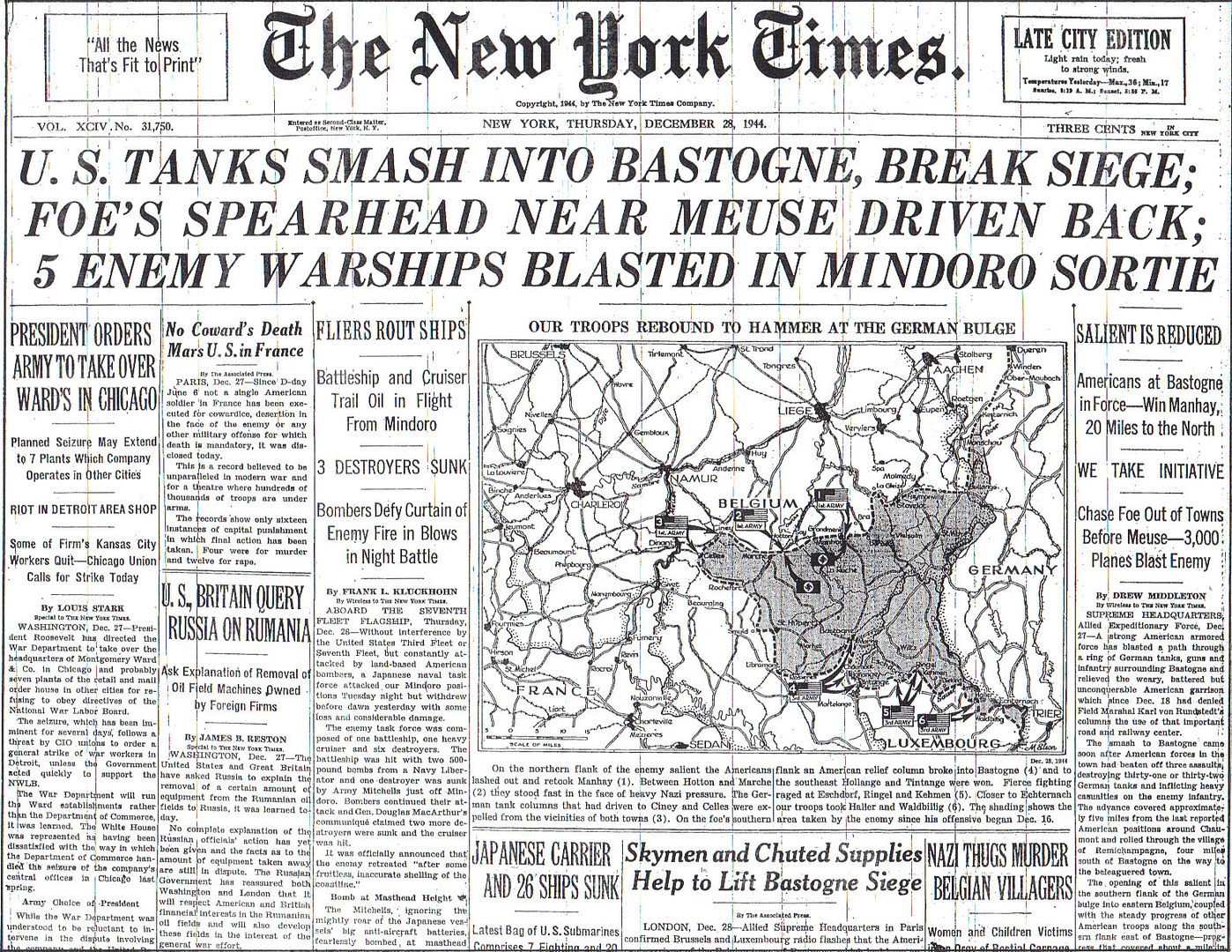
Posted on 12/28/2014 4:33:52 AM PST by Homer_J_Simpson

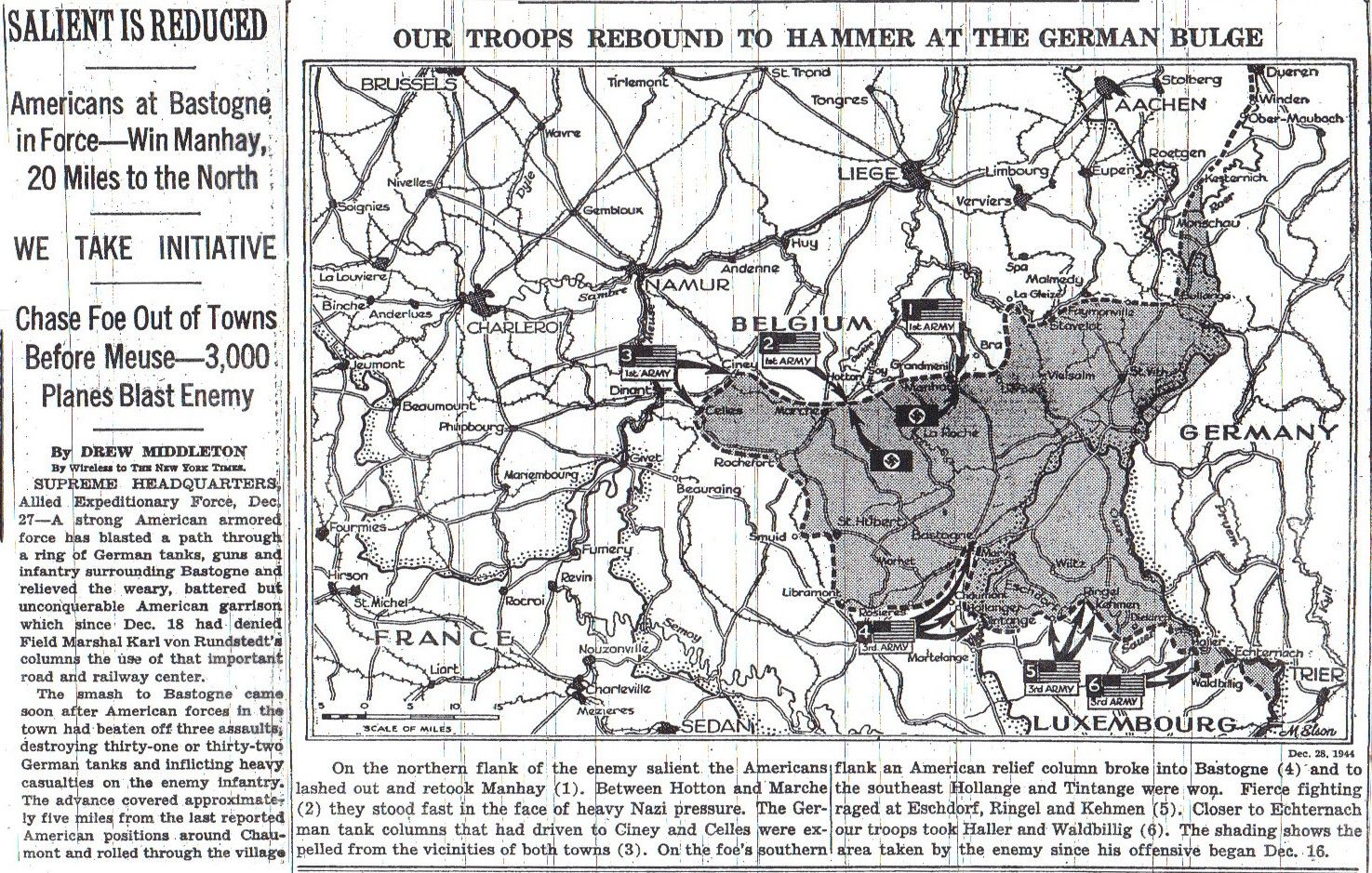
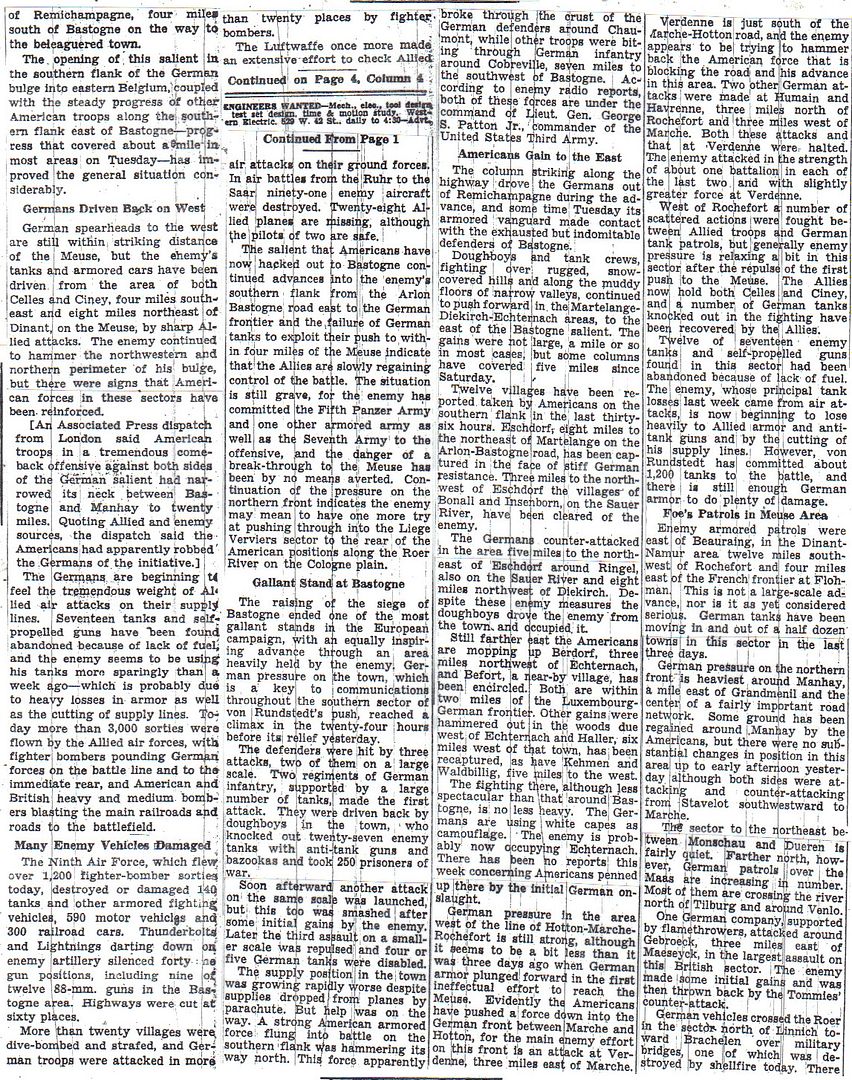
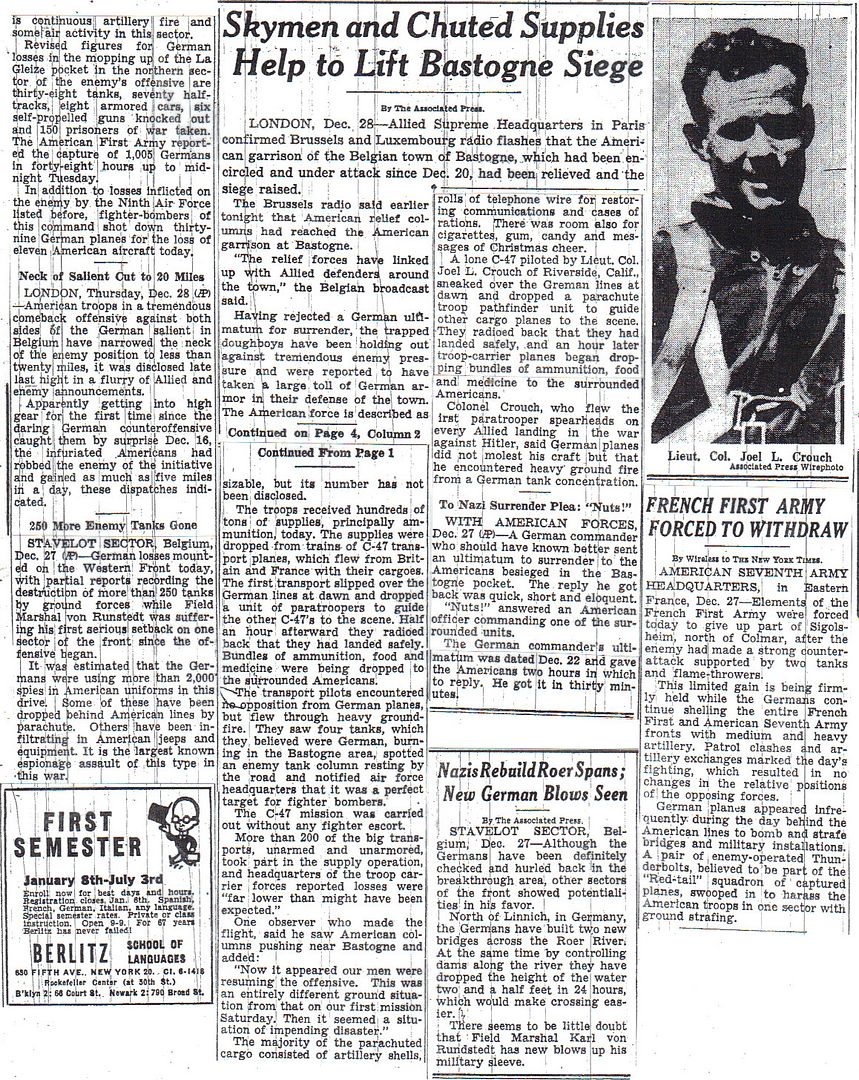
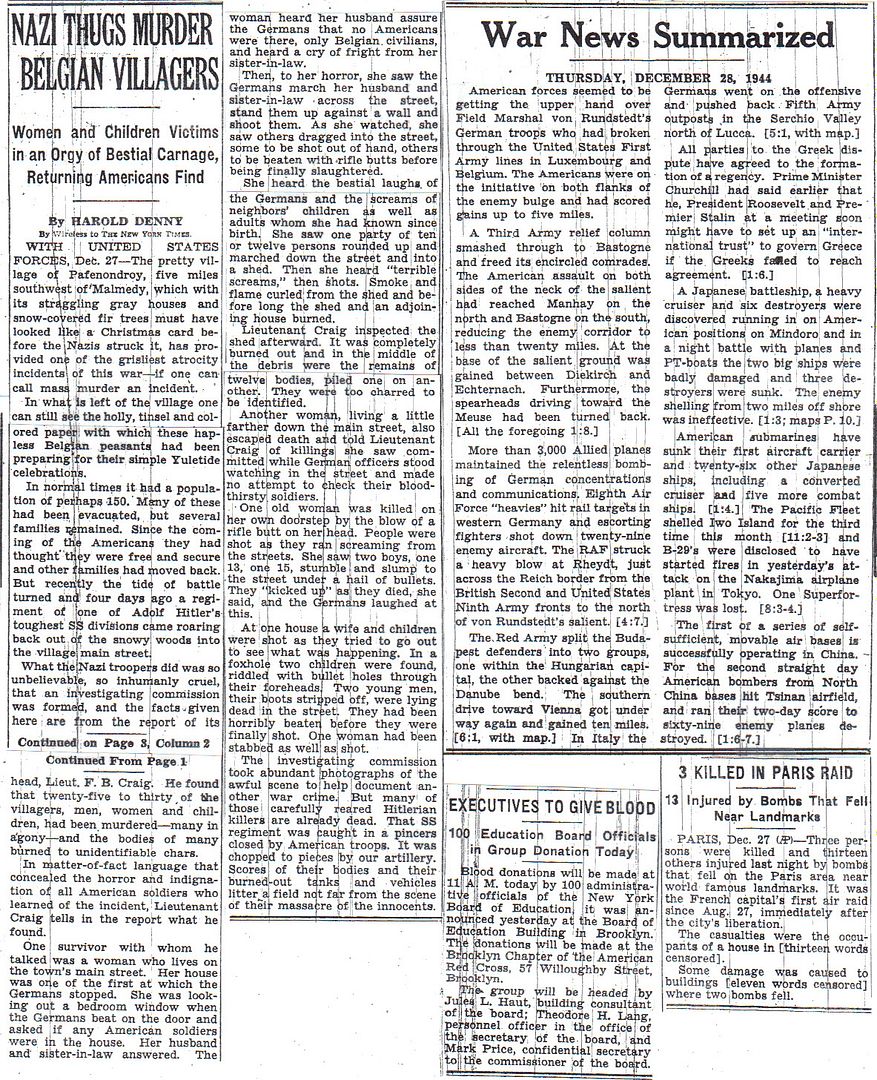
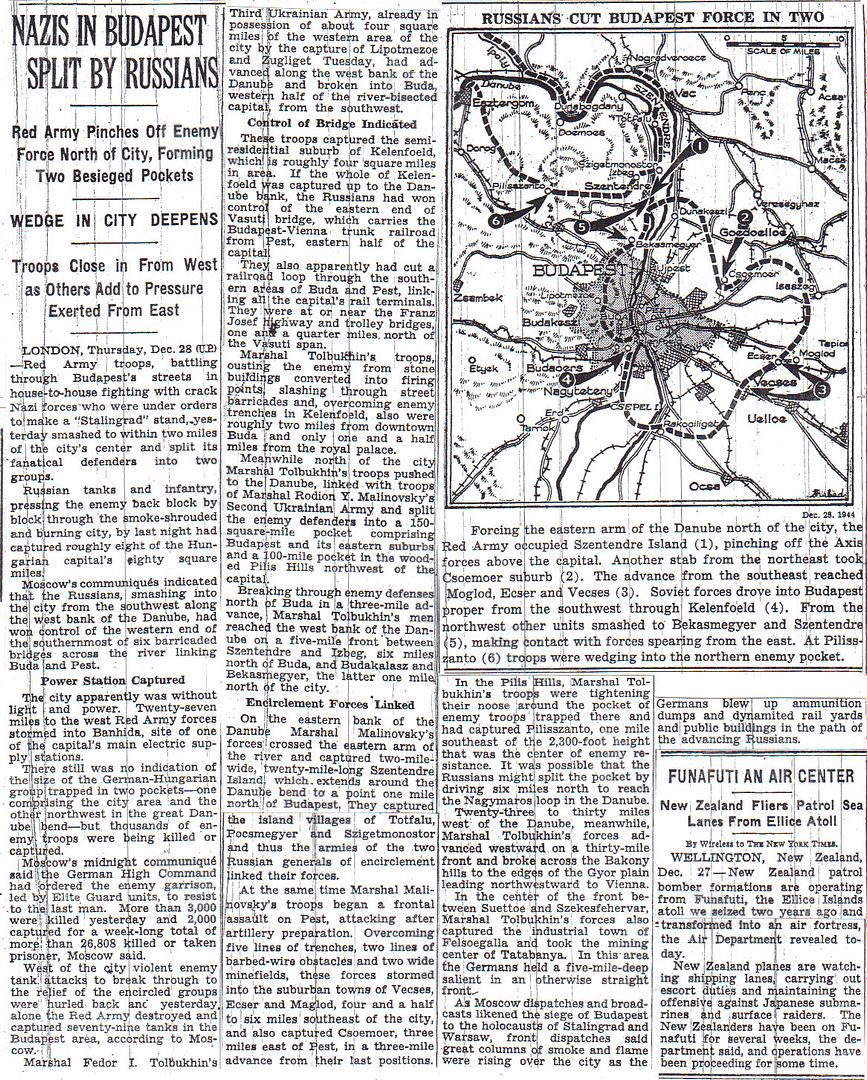
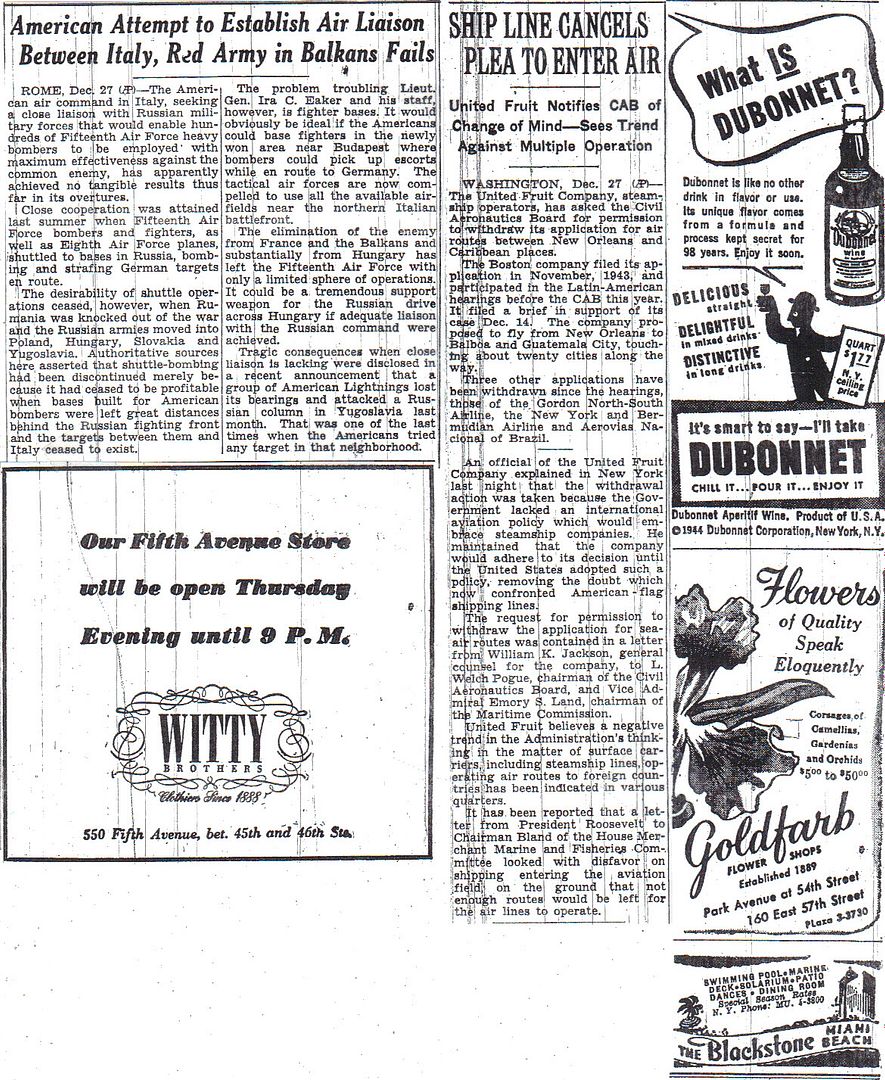
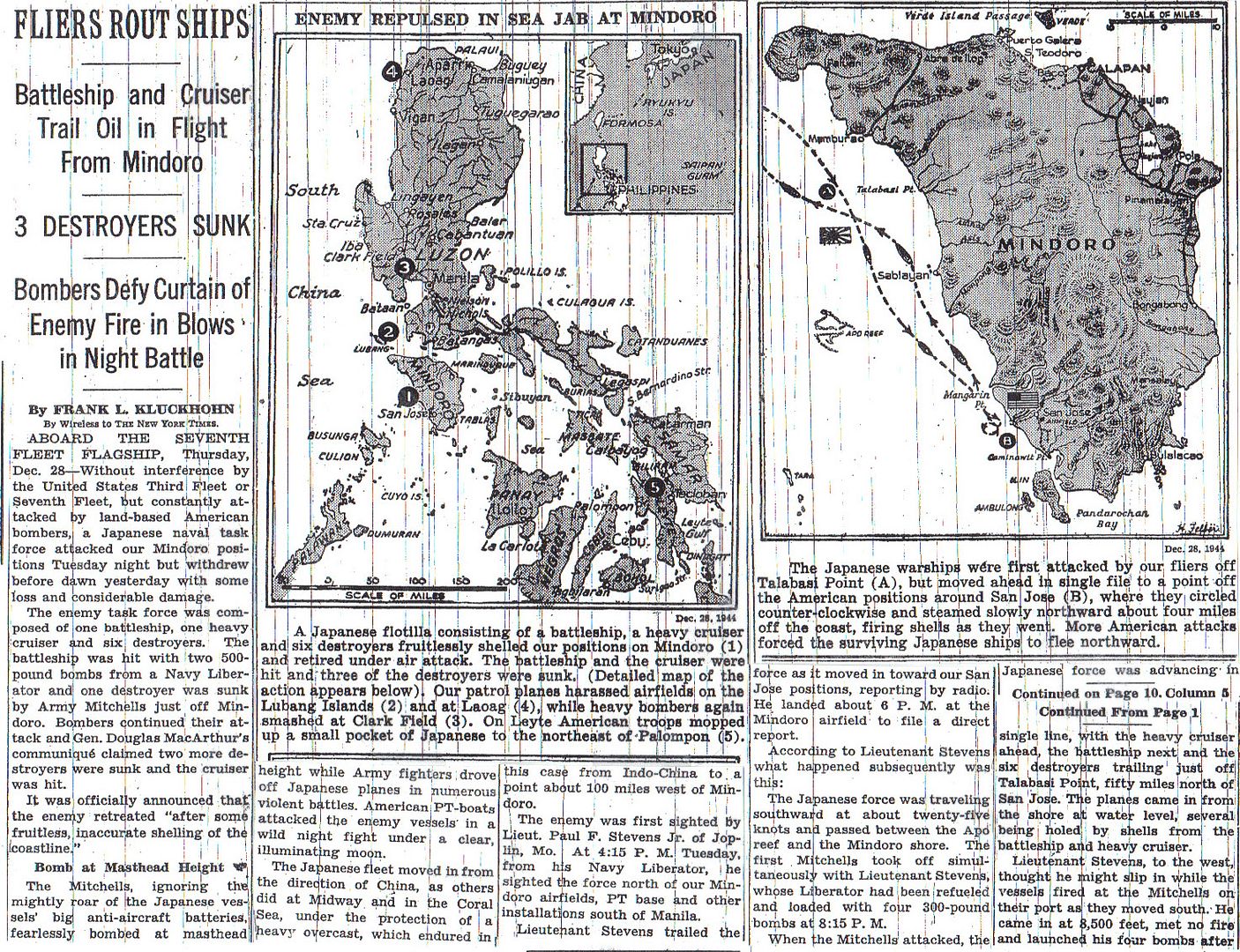
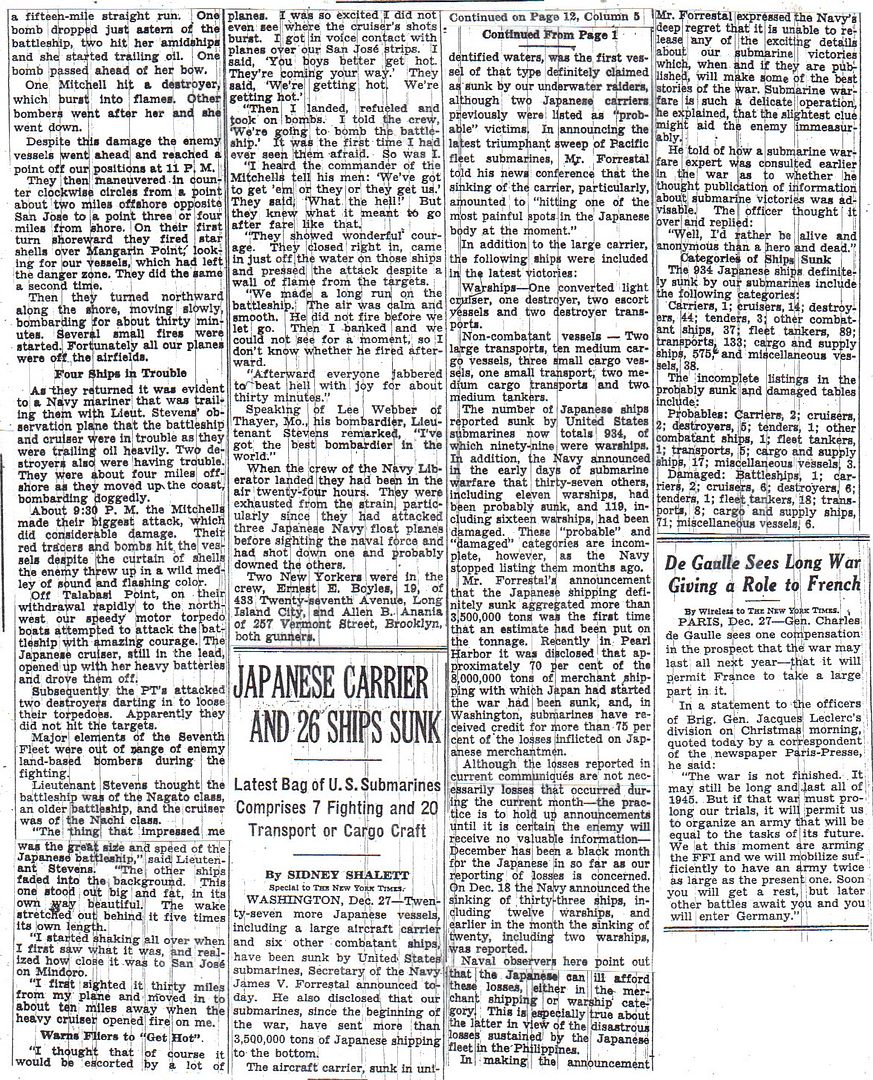
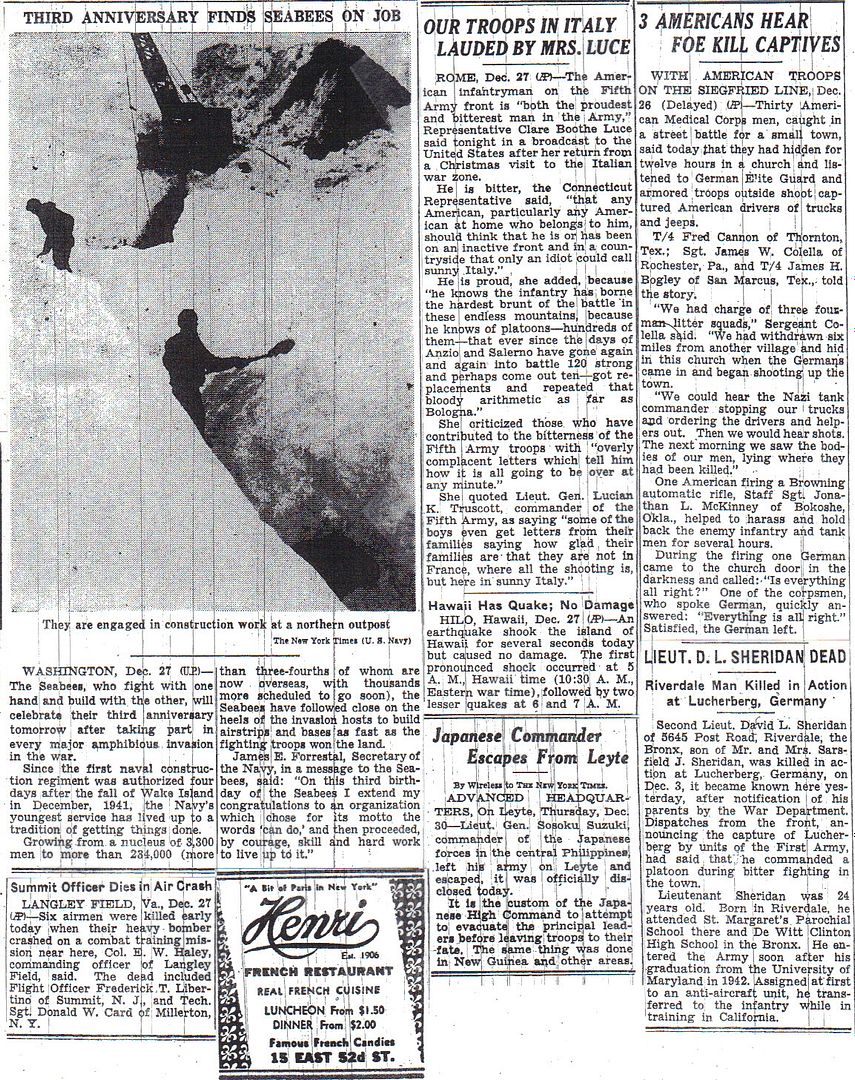
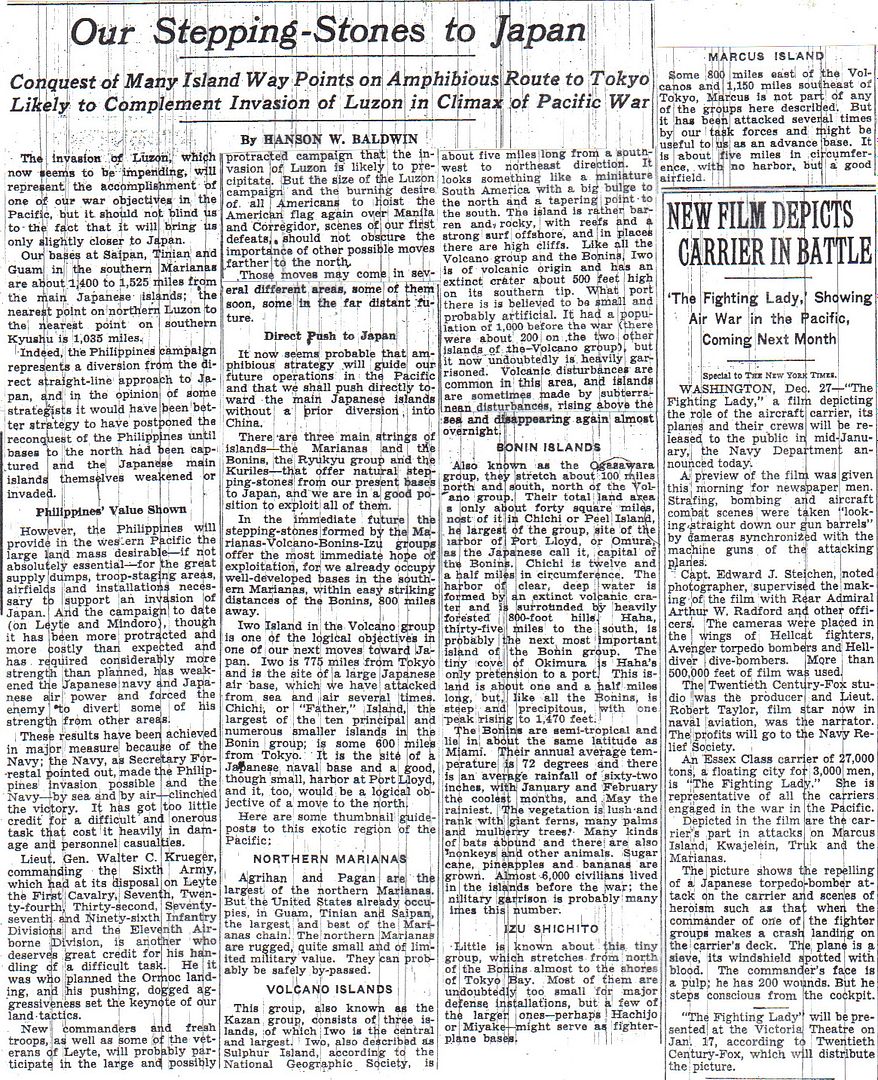
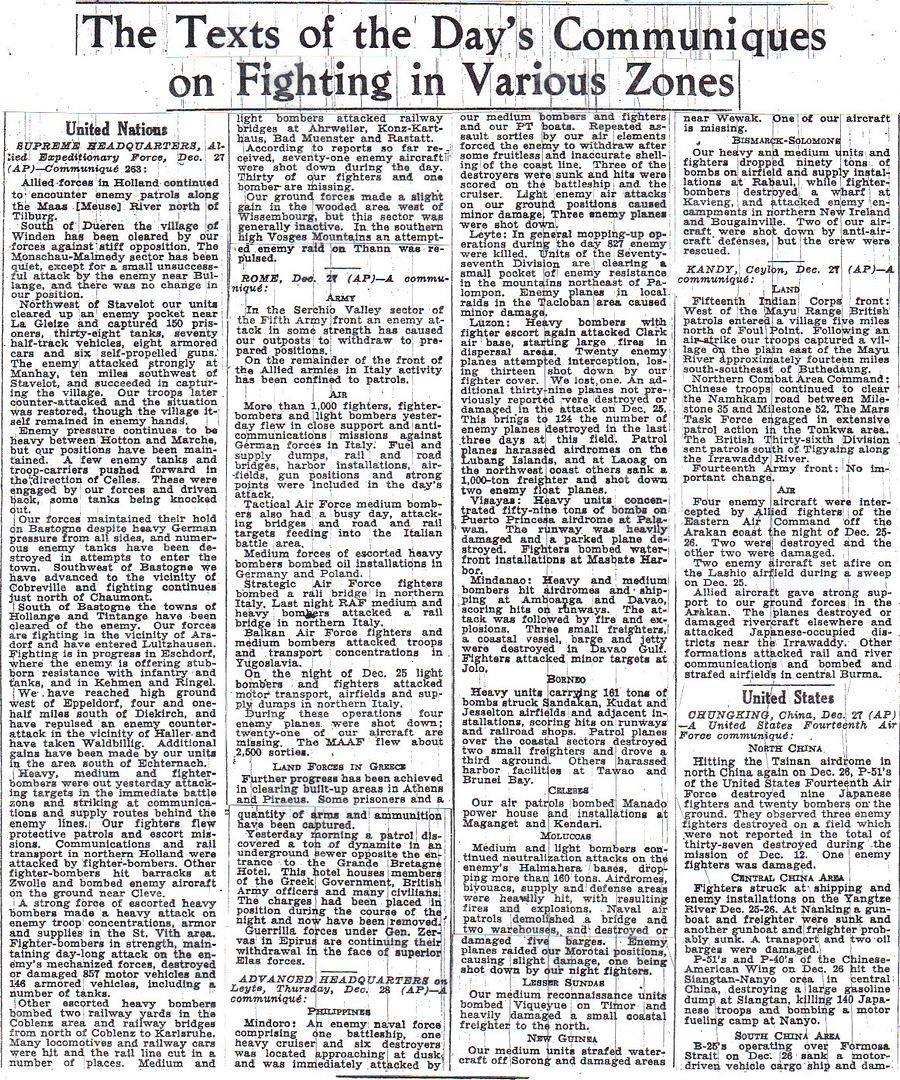
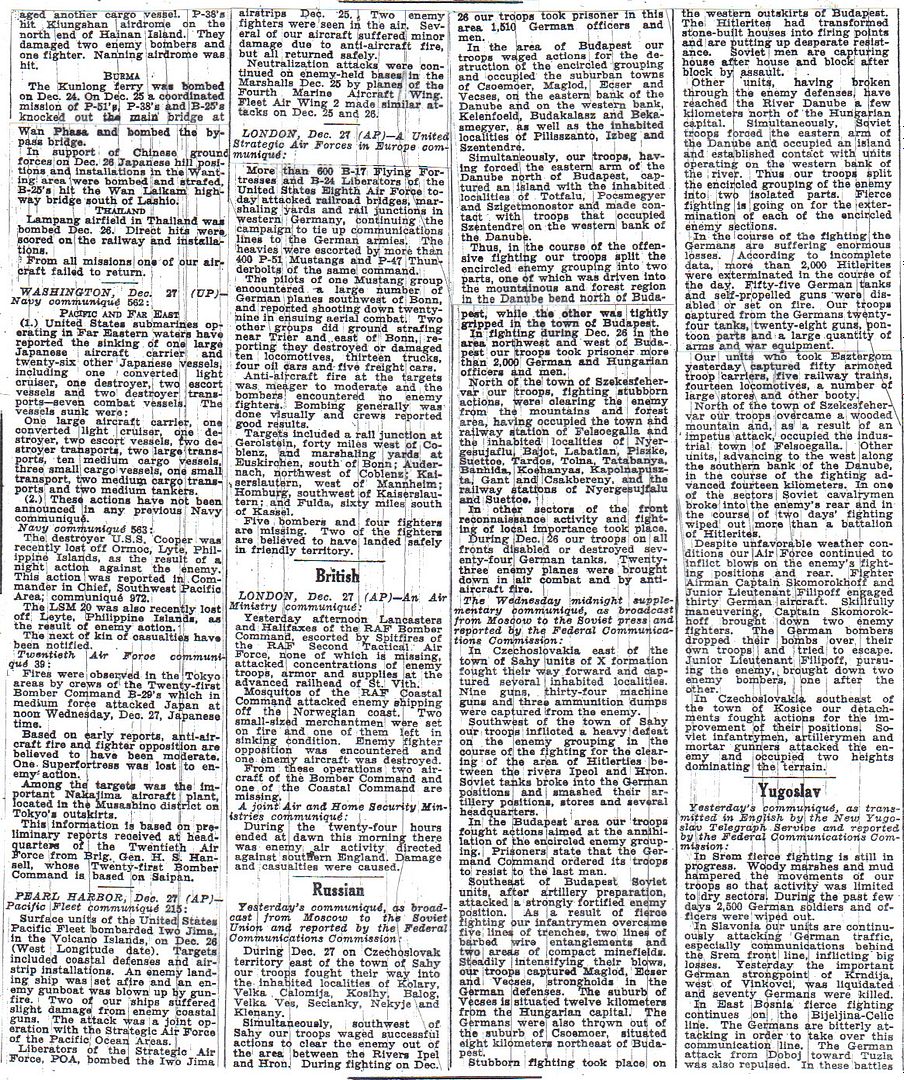
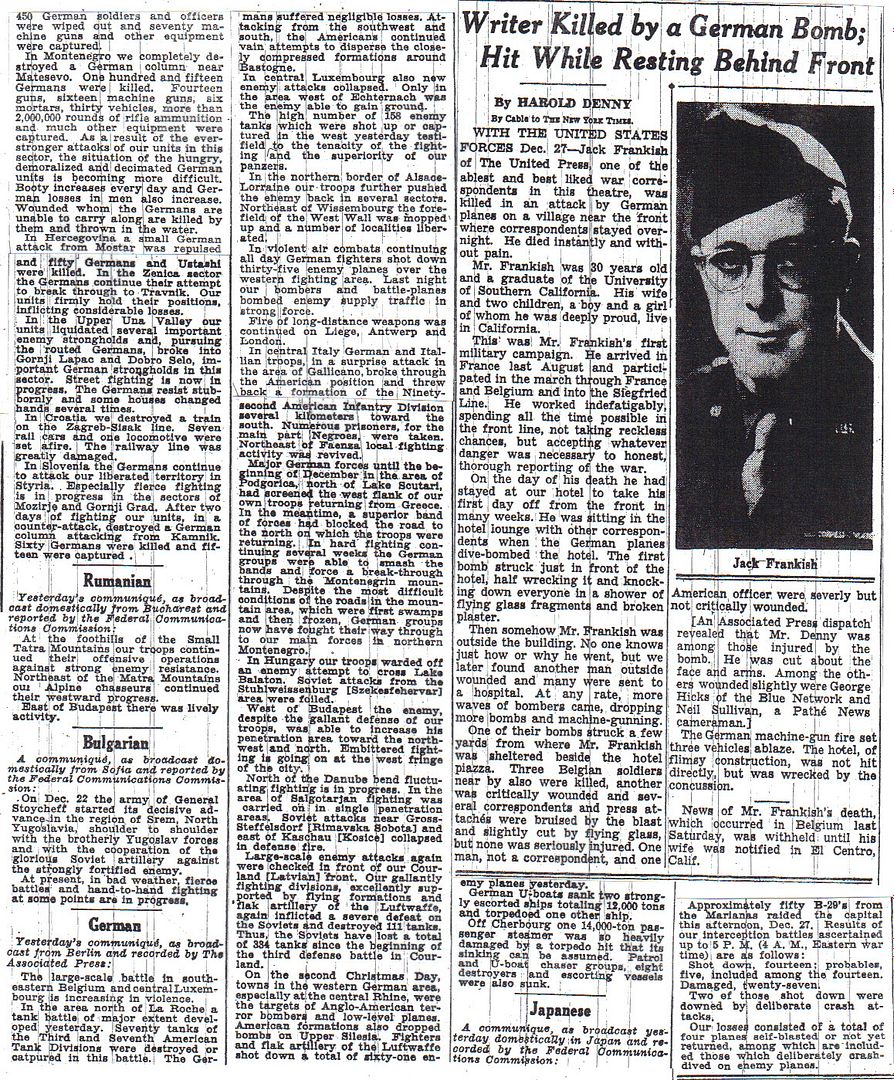
Monty’s arrogance and continued miscalculations. The guy had to have been a burden to Eisenhower.
Couldn’t find the “Nuts” Bastogne reply on NYT page 4.
Third column, halfway down.
I love it. Thanks.
He was a huge burden to Ike. He was also a National hero to the British people.
Ike HAD to put up with Monty for the coalition to work.
Hitler tried to split that coalition with the Battle of the Bulge.
Hitler, mad as a March hare, nevertheless had a saavy intuition. He obviously knew the tentativeness of the unity of the Allied effort and almost pulled off the Allied split he hoped for. But his generals knew this last-ditch effort was headed nowhere and Hitler’s his madness sealed the deal maybe even hastening the war’s end.
Of course hindsight is 20-20, but had Ike told Monty to forget Market Garden, and instead directed him to secure the Scheldt Estuary at once, and let Patton have the supplies wasted on Market Garden, I think the odds of ending the war by Christmas would have been a real possibility.
The Port of Antwerp was of vastly greater strategic value than a bridge over the Rhine.
Unfortunately, capture of a port where ships will unload isn’t as newsworthy as rapid advances and enemy casualties. Especially when the port was captured without a fight.
Right below “Skymen With Chuted Supplies” column...
All good points.
The “fog of war”, the multiple egos and personalities and international “Allied” political concerns Ike had to deal with, as well as certain unpopular objectives combined to allow things like M-G (instead of taking the Scheldt Estuary immediately) to do the damage it did in prolonging the war.
I admire Ike in the overall way he handled his role. I think few could have done it as well as he did. I guess we needed the British to win the war, apparently. But if we hadn’t needed the British militarily against the Nazis, personally I think it would have been better and faster if the Americans could have just gone in there and do what they had to do without all the British/Monty B.S.
I’ve come to the opinion that Monty’s failure to clear the Scheldt Estuary in September led directly to the Ardennes Offensive in December. Without the logistic limitations, the Americans would have deployed more divisions earlier, and sufficiently supplied, the “big push” in November at Metz and Aachen would have happened in October. Hitler would not have been able to hold the front west of the Rhine with his thin screen of units. The strategic reserve would have been forced from his hand before it was even fully assembled.
Yes, some sort of counter attack would have been inevitable, but it would have been reactive, not proactive. With weaker forces against well supplied more mobile Americans with air support in (slightly) better weather.
Think Mortain.
Thanks. I appreciate your keen insights.
I know it is easy to forget, considering the momentous events in the Ardennes, but the ETO was not the only theater of war.
http://home.comcast.net/~cbi-theater-5/roundup/roundup122844.html
Great flick! “Bridges at Toko Ri” seemed to copy it quite a bit.
Unfortunately, as today's posts imply, Ike could not have forced that without firing Monty, which was politically impossible. The man seems to be living on another planet.
I think maybe the explanation is as simple as the headlines that Homer_Simpson puts up for us to read every day. Generals are humans and like to read their own names in the newspapers as much as anyone.
What is the NYT giving the most ink to?
XXX Germans killed!! Patton advances XXX miles!! Siegfried Line smashed!! Monty takes bridges!! And so on.
Not much ink on this: Supply trucks roll xxx miles, or xxx tons of cargo offloaded from ships.
So naturally, the generals are going to try to do what gives them the best press coverage back home.
How many times have we seen posts where the Germans complain they can't move in the daytime because we fill the air with planes and artillery shells? We could beat superior German tanks because of our numbers. (Well, that and outstanding tankers like Creighton Abrams.) We can do that because of our logistical tail.
The CBI was indeed a forgotten theater. One of my college friends’ dad was a Air Corps ground crew in India. He had some interesting stories, but knew he was in a “backwater” more or less.
There were so many reasons the deck was stacked against the CBI ever being meaningful.
1) Lumping the CBI together was an inherently awkward conglomeration of competing interests. The British were interested in preserving the Empire in India and restoring it in Burma and Malaya. The United States had no interest in doing that, but still wanted to help China, who also had no interest in preserving or restoring the British position in the East.
2) It was the rock bottom logistic priority for both the British and Americans. The British simply could not spare anything for the theater, and the Americans had much higher priorities elsewhere. American resources were vast, but nonetheless finite. CBI just didn’t rate, and we made it very clear early on that the United States was not going to commit any substantial ground force for Burma, because we were not out to maintain the British Empire.
3) Location, Location, Location part 1: The CBI theater was geographically on the far side of he world, with the enemy more or less blocking the direct supply routes. It might as well have been on the far side of the Moon.
4) Location, Location, Location part 2: Burma was the perfect defensive bastion for the Japanese. It is geographically isolated by mountain barriers with India and China. Those mountains have few natural passes for communications. It was climatologically protected six months out of the year by the Monsson that made military operations impossible. The Japanese conquered it with four divisions, and held it for four years with only five. Small change in terms of resources, but made possible because the Americans and British simply could not get at them.
5) China and India were economically backward, and incapable of anything more than providing cannon fodder. And the Indians didn’t provide that much as, by that time, they weren’t willing to fight for the British Empire either. We all know how corrupt and incompetent Chaing’s Nationalist regime was. So there just weren’t any meaningful local resources to use against the Japanese.
So it was very much the forgotten war for men like Russell Moody of Gary Indiana, who toiled in anonymity servicing airplanes before coming home to work a career at Inland Steel.
Enlightening post. Thanks.
Disclaimer: Opinions posted on Free Republic are those of the individual posters and do not necessarily represent the opinion of Free Republic or its management. All materials posted herein are protected by copyright law and the exemption for fair use of copyrighted works.